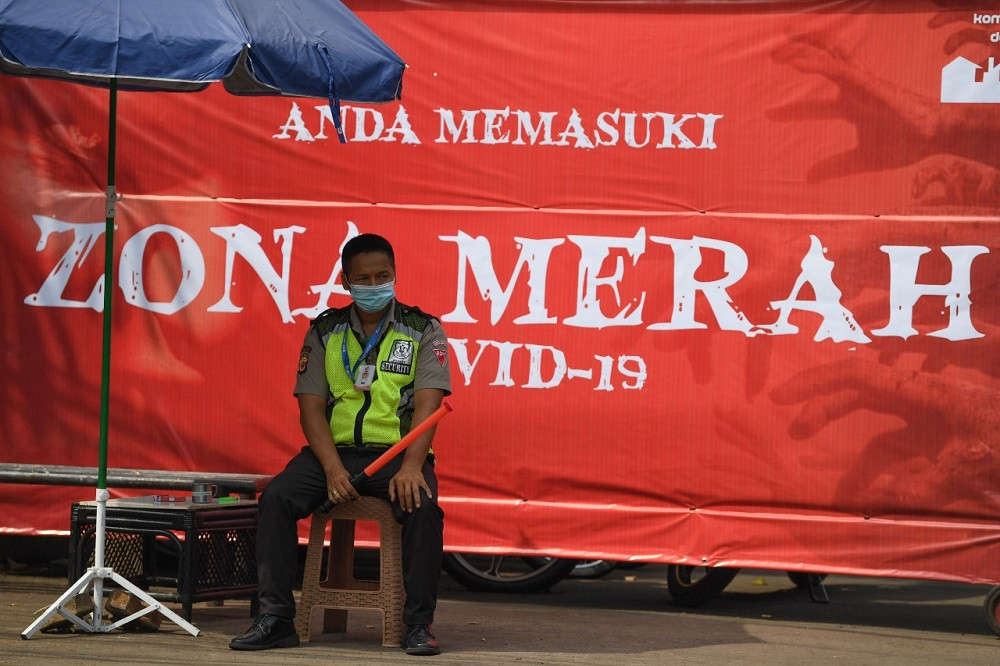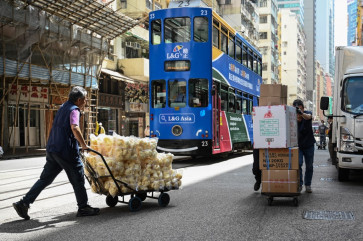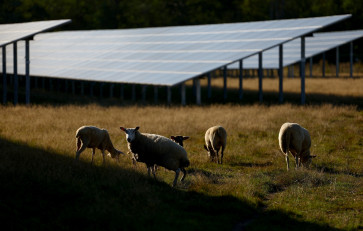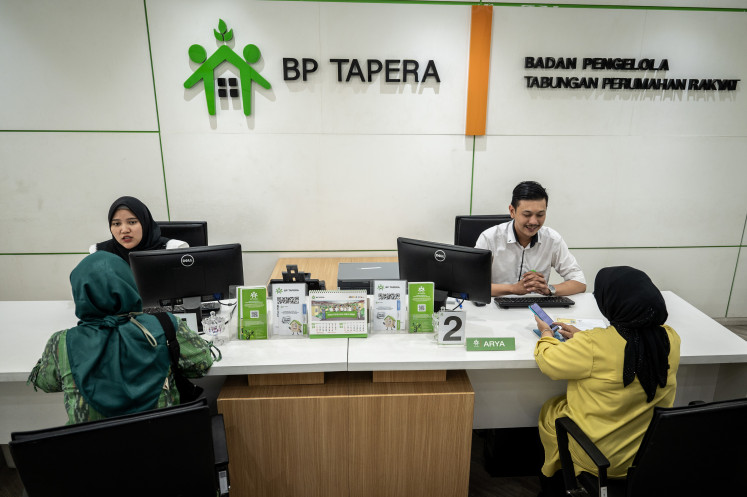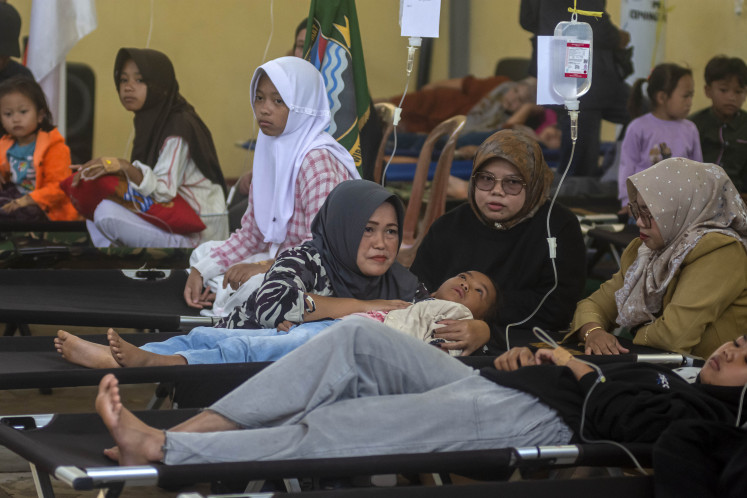Popular Reads
Top Results
Can't find what you're looking for?
View all search resultsPopular Reads
Top Results
Can't find what you're looking for?
View all search resultsFiscal dominance to avert greater macro problems
It is essential to realize that more restrictions on mobilization of the economy would put the acceleration of the supply economy as well as consumption on hold.
Change text size
Gift Premium Articles
to Anyone
T
he government has resorted to stricter mobility curbs, which will last until July 25. For the second time since the COVID-19 pandemic struck in March last year, such an intervention is inevitable to stop the exponential virus transmission. At the same time, we should examine and mitigate the impact of the emergency public activity restrictions (PPKM Darurat) on the economic and financial sectors as the trade-off.
The struggling economy will encounter challenges similar to previous problems. The real economy faces “dual problems” from the supply and demand sides. Of course, the consequences might be minimized for essential goods and services by implementing a safe harbor for them. But we should not overlook the rest of the economy.
Some market experts have expressed that the financial sector is somewhat “immune” from the changing-mobility policies. But it is not necessarily the case. More constrained businesses would likely be transmitted to the financial markets, thanks to the intertwined relations among sectors in the macro economy.
For a solution, let us start by examining the current macro condition. The latest data on gross domestic product (GDP) growth in the first quarter (Q1) of 2021 is negative 0.74 percent year-on-year. Even though GDP is still contracting, it is quickly recovering, at least for the time being until we see what effect the PPKM Darurat have on the economy. It is evident that the contraction is getting smaller over time.
The government and authorities are optimistic, even if they revised the outcome projection to between 4.1 and 5.1 percent. The optimistic view is supported by some reliable data and dynamics. In the external sector, Indonesia has a better position on net international investment (25.3 percent of GDP per Q1 2021), reserves adequacy (US$137.1 billion as of June 2021) and trade balance surplus ($2.36 billion as of May 2021).
The advanced economies in the western world are showing a strong recovery, which is mainly due to their outstanding vaccination performance.
On the downside, we must be careful about the adverse impact on emerging markets, including Indonesia. Capital would rationally take off to safer havens once it is readily available (i.e., the rise of interest rates in advanced countries). Nevertheless, the EU region faces similar problems as ours, namely fast spread of the virus due to Euro 2020 euphoria.
United States inflation is, however, not yet so fundamental and wide that there is a serious risk of a “taper tantrum”. But they might get there sooner than we expect. Hence, we must stay alert.
In the monetary and financial sectors, we have seen that Bank Indonesia’s (BI) seven-day reverse repo rate (7DRRR) held at 3.5 percent. The easing of monetary policy continues with more accommodative macroprudential policy to regain the state of credit. Meanwhile, BI began to consistently publish the assessment on policy rate transmission to banks’ prime lending rate (SBDK).
Unsurprisingly, more transparency on SBDK works for gradually narrowing the gap between the market rate of credit and the 7DRRR. Although it remains negative 1.28 percent year-on-year, the banking intermediary is improving.
However, banking liquidity is leaning toward excessiveness. The embedded factors are still-loosened monetary policy, credit restructuring program and the price of uncertainty. From the macro perspective, unproductive liquidity equals Keynesian “hoarding risks” as the deflationary force. Monetary policy has its limitation because it cannot directly affect the real sector.
In the words of Prof. Paul A. McCulley, too much liquidity creation relative to the credit creation for productivity is the existential macro problem (i.e. “hoarding risks”). Hence, we should look for a solution. And for the viable solution, just as at the beginning of this pandemic, we turn to fiscal dominance (i.e. government-dependent economy).
I am not against PPKM Darurat. On the contrary, we should be sincere that today’s exponential COVID-19 transmission must be met with more resolute measures. Even so, we should again highlight the fiscal dominance position. It is essential to realize that more restrictions on mobilization of the economy would put the acceleration of the supply economy as well as consumption on hold.
We should focus on these three indicators: expected velocity of economic recovery, excessive liquidity on the banking system and embedded risks born from the global factors. It is now important, more than ever, to ensure productivity, invoke consumption and retain confidence. The goal is not to lose our momentum, not to start from scratch.
PPKM Darurat could serve as a “speed bump” for all of those, but with the right measures, we will soon regain our pace. Glad to know that Finance Minister Sri Mulyani Indrawati has stated that she would intercept if there was still slow absorption of the health sector budget at the regional level and make the government budget available to support PPKM Darurat.
We could expect a better government spending performance amid this lower mobilization of the economy.
To conclude, fiscal dominance should, by all means, lead the way of productive endeavors. Fiscal authority is in a position to lead the way by either public investment or productive private investments. In doing so, we could boost productivity, consumption and confidence.
Considering that credit growth remains slow, fiscal dominance is the viable solution to avert greater macro problems. Other measures on monetary policy and macroprudential toolkits are readily available as the support system of said fiscal dominance.
Soon after the COVID-19 pandemic is manageable, we must indeed reexamine the dynamics. The impact of fiscal dominance in the long run needs evaluation. But we are not there yet.
The economy is about a cycle, thus perhaps it is true that economists shall never sleep, even if the condition is comfortable enough for them to sleep. We can and will go through this together.
***
The writer is a legal advisor, Bank Indonesia. The views expressed are his own.

